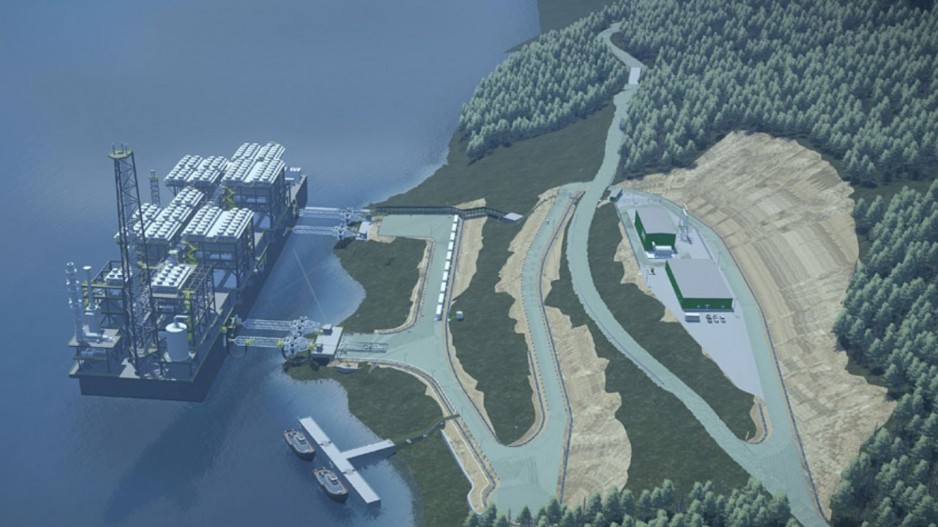Cedar LNG plant gets green light in British Columbia

A C$3 billion ($2.2bn) floating liquefied natural gas plant that the Haisla First Nation and Pembina Pipelines (TSX:PPL) plan to build in Kitimat, British Columbia got the green light from the provincial government Tuesday.
The project completed an environmental review in mid-November under a provincial-federal substitution process, with the BC Environmental Assessment Office conducting the review. The project will still need the federal Environment minister’s approval.
The Cedar LNG project will be the first LNG plant to be built and owned by a First Nation. The Haisla’s industry partner is Pembina Pipelines.
“Today is not just about the approval of an LNG facility,” said Haisla Chief Crystal Smith. “Today is about changing the course of history for my nation and indigenous peoples everywhere.”
“While it took longer than expected, we are pleased to see the B.C. government move forward on this project,” said John Desjarlais, chairman of the Indigenous Resources Council. “Cedar LNG is a first of its kind with an Indigenous proponent driving the project forward.”
The project’s approval was announced Tuesday in conjunction with a new “energy action framework” that the province unveiled to try to fit energy into B.C.’s climate change plan.
It includes an emissions cap for B.C.’s oil and gas sector and requirements for new LNG projects to have “a credible plan to achieve net-zero emissions by 2030 in order to proceed through the environmental assessment process.”
“Today is not just about the approval of an LNG facility,” said Haisla Chief Crystal Smith. “Today is about changing the course of history for my nation and indigenous peoples everywhere.”
“While it took longer than expected, we are pleased to see the B.C. government move forward on this project,” said John Desjarlais, chairman of the Indigenous Resources Council. “Cedar LNG is a first of its kind with an Indigenous proponent driving the project forward.”
The project’s approval was announced Tuesday in conjunction with a new “energy action framework” that the province unveiled to try to fit energy into B.C.’s climate change plan.
It includes an emissions cap for B.C.’s oil and gas sector and requirements for new LNG projects to have “a credible plan to achieve net-zero emissions by 2030 in order to proceed through the environmental assessment process.”
ARC Resources (TSX:ARX) announced Tuesday that it will provide the natural gas and liquefaction of half of Cedar LNG’s total production — 1.5 million tonnes annually.
When the Haisla negotiated a benefits agreement with LNG Canada, it secured a natural gas offtake agreement with the associated Coastal GasLink pipeline, so all that is needed in terms of a pipeline is a connector line.
Following a green light from both the provincial and federal governments, Pembina Pipelines has said it expects to make a final investment decision in 2023, with a four-year construction period and a seven- to nine-month commissioning to begin in mid-2027.
Construction was expected to start in the second half of 2023, with peak activity in the spring of 2024 through 2025. The project is expected to employ up to 500 workers during peak construction.
(This article first appeared in Business in Vancouver)
{{ commodity.name }}
{{ post.title }}
{{ post.date }}




Comments